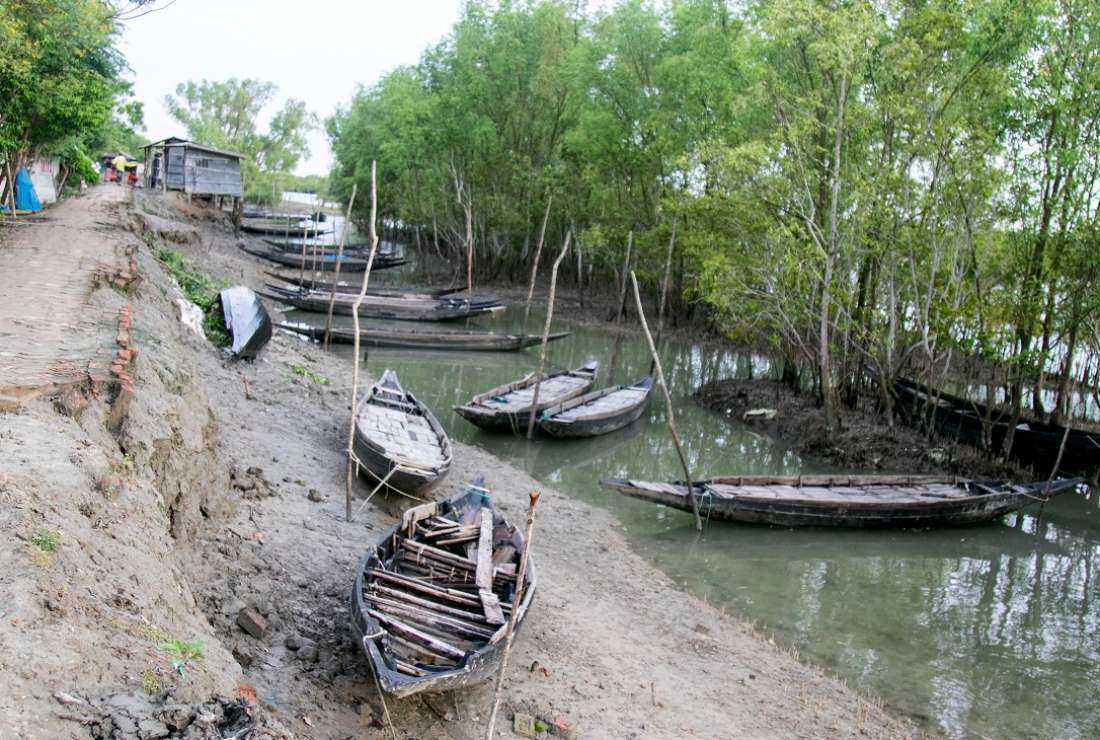Sundarbans ban leaves Bangladesh communities reeling
The government has stopped access to the world’s largest mangrove forest for three months to protect resources

By Stephan Uttom Rozario Published: July 26, 2022 11:04 AM GMT
The Bangladesh government’s ban on access to the Sundarbans forest has left those who earn their living from the world’s largest stretch of mangroves in hardship amid a lack of promised compensation.
The Forest Department has banned the issuing of passes and permits to enter the Sundarbans for June- August. The move covers fishing, crab and honey harvesting and entry of all tourists to all rivers and canals in this extensive mangrove forest.
According to the recommendations of the Integrated Resources Management Plan for the protection of fish resources in the Sundarbans from 2019, the Forest Department has stopped fishing in all rivers and canals in this forest from June 1 to Aug 31, says the Divisional Forest Officer of East Sundarbans, Muhammad Belayet Hossain.
“The government has taken this step with the aim of increasing fish and other resources, development of biodiversity and increase in reproduction because this is the breeding time,” Hossain told UCA News.
He said those who depend on the Sundarbans for a living will have problems during these three months but they will gain benefits in the remaining months of the year.
In the 6,017-square-kilometer mangrove forest, the watershed accounts for 1,874 square kilometers — a little over 31.15 percent of the entire Sundarbans.
According to the Forest Department, the Sundarbans watershed is a treasure trove of aquatic life. There are 210 species of white fish, 24 species of shrimps and 14 species of crabs. Fish are born in the river channels of the Sundarbans during the breeding season from June to August.
About 600,000 people directly or indirectly associated with the Sundarbans who depend on the area for their livelihood are already facing hardships.
Those associated with the Sundarbans are complaining that the government has not provided any food assistance to them.
“In the meantime, we have spent almost two months eating two meals a day instead of three and are almost 10,000 taka [US$106] in debt,” said Manosh Beperi, a Catholic from St. Paul’s Church in the Bagerhat district, covered by Khulna Diocese.
“We have been living by fishing from Sundarbans, a livelihood inherited from our ancestors. I and my 19-year-old son earn a living from fishing but now we have stopped going to the Sundarbans. We have no income,” the father of three said.
“The government should make a list of those who depend on the Sundarbans and use these three months of incentives accordingly. But this has not happened and we are not getting sufficient food. Meanwhile, the price of food and daily essentials has skyrocketed,” Bepari told UCA News.
Many took out loans from moneylenders on the condition that they would later catch fish or crabs and sell to them at lower rates.
“This harms us. Because at that time a kilo of crabs was 500 taka, but according to the contract we will sell it for 400 taka,” said Mohoshin Alom, who catches crabs from the Sundarbans.
“We are counting losses but we have to live in the present. If the government would help us and give us some compensation then we could at least recover this loss. And now that it is monsoon season, there is no day laboring work,” Alom told UCA News.
The government earns about $680,000 every year from the permits of those who go to the Sundarbans for their livelihood, according to the Forest Department. However, a promise for compensation including cash handouts and food rations for the marginalized people from whom the government earns revenues has not been fulfilled yet
Daud Jibon Das, secretary of the Justice and Peace Commission of Khulna Diocese, noted that the Catholic Church is not directly offering assistance to affected communities, but Catholic charity Caritas is running a project supporting the livelihood of thousands of coastal people.
“The Church is not doing anything directly for the victims during these three months, but assistance is being provided through livelihood projects for around 10,000 beneficiaries under the auspices of Caritas’s ongoing project,” Das told UCA News.
“As we work on the livelihood of coastal people, our main aim is to ensure that they have food throughout the year. We also encourage them to save so that they can continue during this hard time.
“They save something every day, grow vegetables in the backyard which they sell to earn some money. We advise them to save without spending the whole and spend it in these three months,” Das told UCA News.
Kazi Arifur Rahman, the additional administrator of Satkhira district, said coastal communities are under the social security program of the government. However, the government will soon make arrangements to cover the additional expenses incurred by them during these three months.




